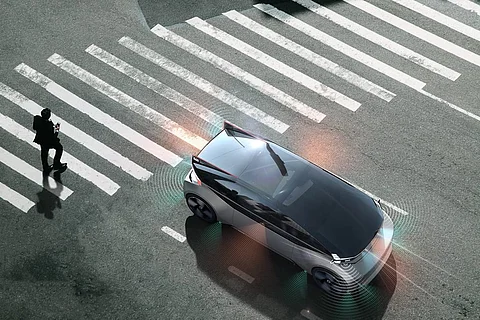

When you imagine a digital future how do you see yourself commuting from your house to office? Without a doubt, traveling is the most basic routine of any individual which is soon to be overtaken by automation. Automation is not just a concept, but a scope with various genres where human hand over their responsibilities to machines.
Self-driving cars are one such thing of future where one can just hop into the car tell it to move to the destination he/she wants to go. While riding you can also check emails and surf through different things online using a car system.
Although today's cars are well-versed with computerized features thriving in a multimedia environment, self-driving cars are approaching to take this adventure to a whole new level. While enjoying the ride in such cars, passengers can also spend their time in mixing up with media as the latest technologies are shifting the meaning of a car from being just a product to an amenity providing a heap of unconventional services. A variety of vendors, media companies, search engines, retailers aiming to offer their services through infotainment system of self-driving cars are potential factors driving the digital conversion of commuting wheels.
The automobile companies, ride-sharing services, and others will get to enter a new info-centric space as the acceleration in the growth of self-driving cars would essentially require expanded communication networks.
Operating over the geospatial synergy, navigation, AI, ride-sharing services, automotive technologies, the automobile industry and technology industries are expected to get densely integrated via autonomous vehicles.
However, the whereabouts and other details of the person riding the vehicle will be tracked remotely by companies. With further advancements in autonomous vehicles, car companies are likely to transform under the digital economy. The car companies, combining with existing customer profiles, will extract personalized consumer information using geospatial and navigation technologies.
Self-driving cars will serve the novel medium for surveillance. Companies will have access to extremely contextual data about passenger's activities including habits, routines, movements, and preferences through car's global positioning, system, navigational tools, and other data gathering mechanisms.
Luis F. Alvarez León, an assistant professor of geography at Dartmouth said, "This trove of personal, locational, and financial data can be leveraged and monetized by companies, by providing a data-stream for companies to target customers through personalized advertising and marketing."
Well according to Alvarez Leon, the riders or car driver need to protect their data at a cost of tradeoff. They might need to pay to the companies to keep their data private.
Following further development in self-driving car technologies, privacy and security become a major issue. The debate is about how these companies would use the personalized data of passengers and the specific governing bodies have yet to prescribe federal regulations over data privacy policy.
Join our WhatsApp Channel to get the latest news, exclusives and videos on WhatsApp
_____________
Disclaimer: Analytics Insight does not provide financial advice or guidance. Also note that the cryptocurrencies mentioned/listed on the website could potentially be scams, i.e. designed to induce you to invest financial resources that may be lost forever and not be recoverable once investments are made. You are responsible for conducting your own research (DYOR) before making any investments. Read more here.
